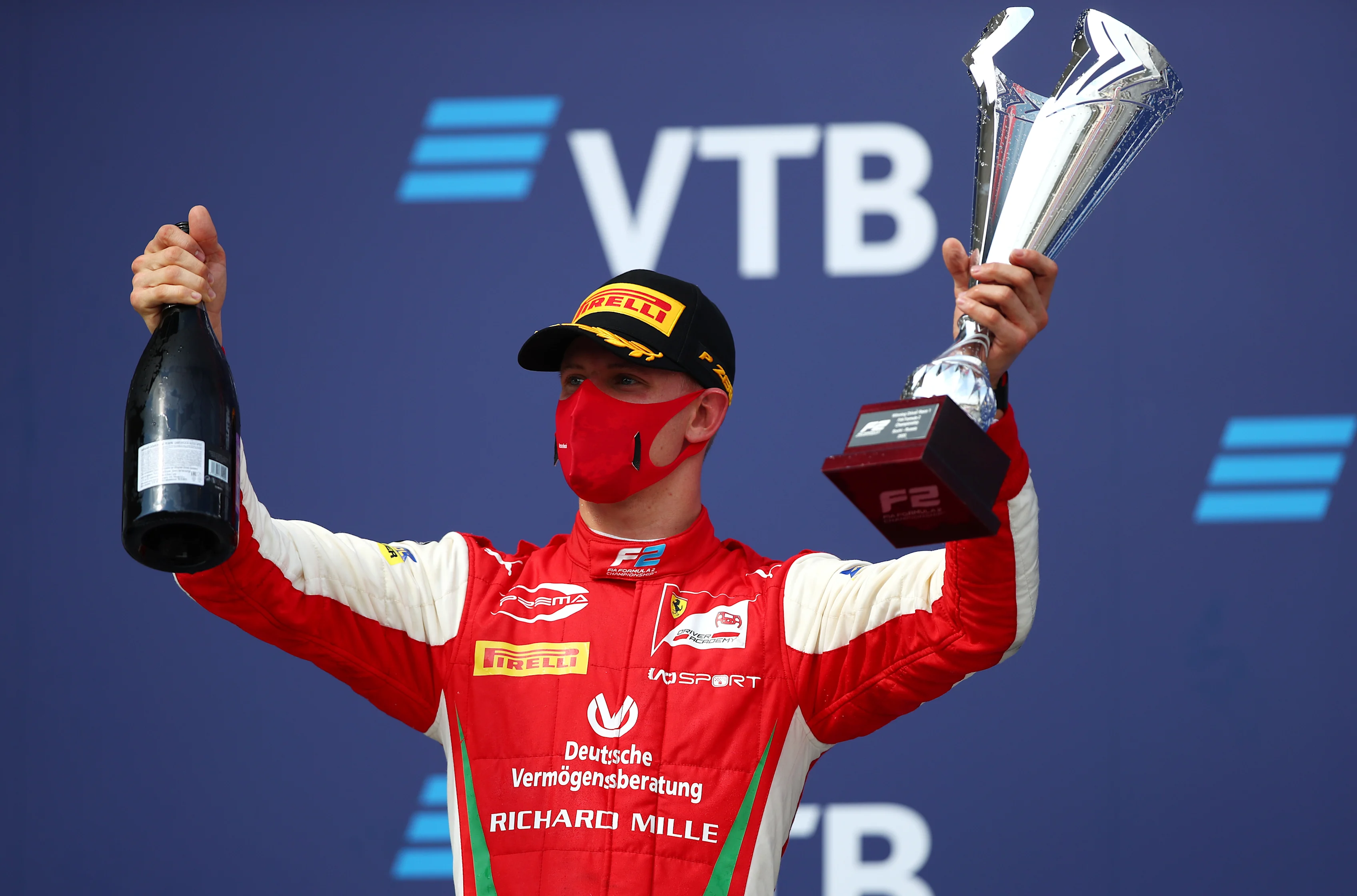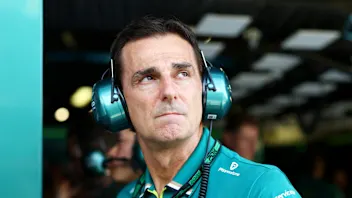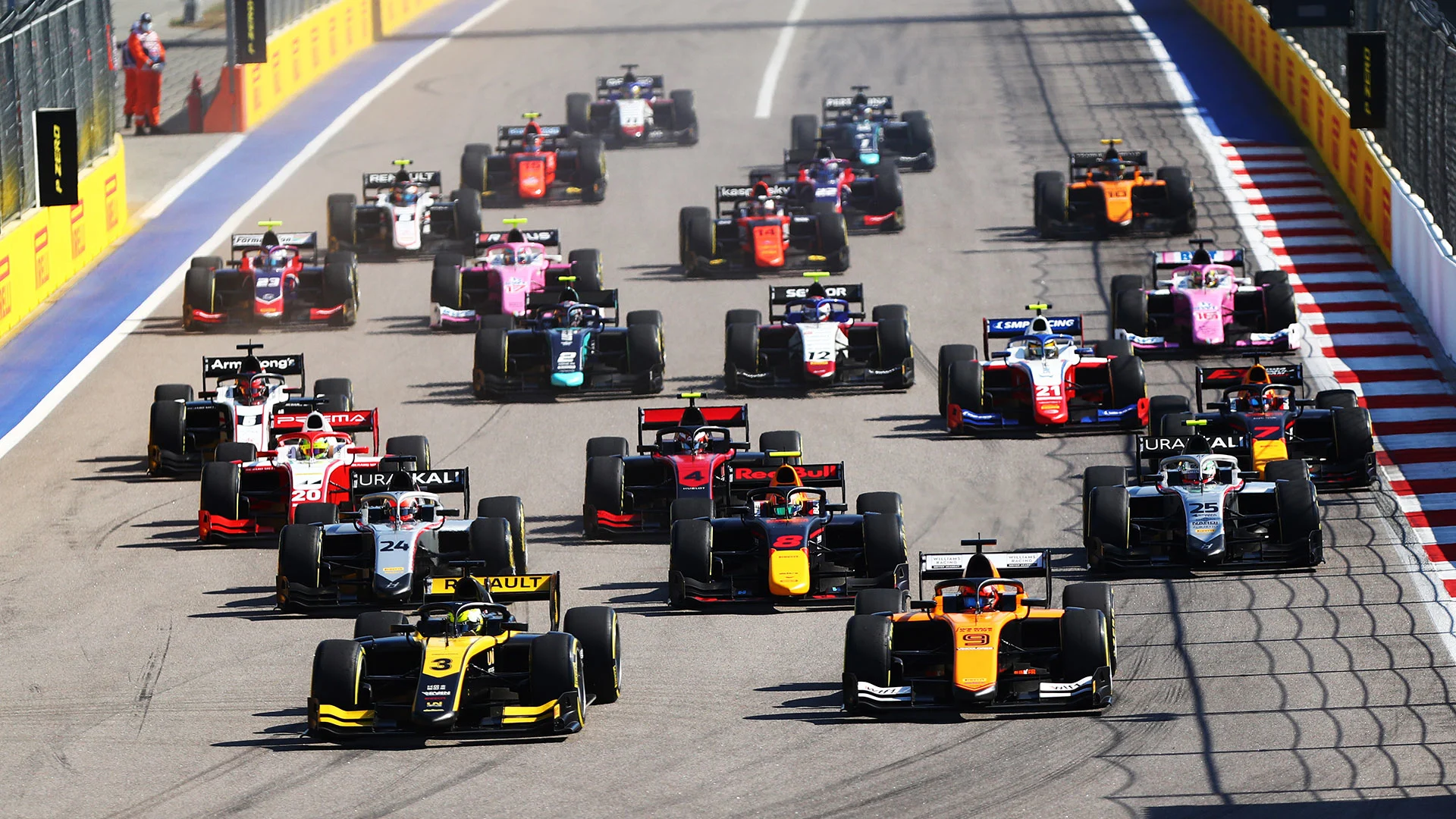Formula 2 and Formula 3 will each run three races per weekend rather than two from 2021 onwards, as part of a series of new cost-cutting measures announced on Friday.
In a package of changes designed to help keep budgets in the two categories under control, new agreements with the suppliers to F2 and F3 will mean that costs of the engine lease and of some spare parts will decrease significantly next season. In addition, costs related to logistics and freight will also be cut.
Moreover, the promoters have decided that, subject to approval from the World Motor Sport Council, the same car will be used for the next three-year cycle of F2, which will start in 2021. The 2019 Formula 3 car’s specs will also be unchanged for 2021 and are likely to remain the same for the following seasons, with the next three-year cycle starting in 2022.
READ MORE: 8 key questions on Formula 2 and Formula 3’s new cost-cutting measures answered
Finally, one of the teams’ variable costs is the number of events per season, which directly impacts their budget. Therefore, it has been decided that an efficient way to reduce their expenses is to go to fewer venues, but without decreasing the number of races.
Currently, each F2 and F3 event comprises two races. From 2021, they will be made up of three races instead. Formula 2’s calendar will consist of eight events, but will keep a total of 24 races. This means the F2 teams will save up to a third of their logistics costs. As for Formula 3’s calendar, it will comprise seven events, but 21 races in total, thus increasing the overall mileage per season.
In order to achieve this, F2 and F3 can no longer run on the same race weekend, as it is impossible to fit six races around a Formula 1 Grand Prix. Therefore, it has been agreed with the FIA and FOM to have three races of either F2 or F3 per Grand Prix weekend, the format of which will be announced at a later date.
The key points
• Decrease in costs of engine lease and of some spare parts.
• Logistic and freight costs also to be decreased.
• No new F2 car will be introduced for the next three-year cycle (2021-2023).
• F3 car’s current specs to remain unchanged in 2021, and likely to stay the same in following seasons.
• F2 and F3 Championships to race at fewer venues in order to save the teams’ variable costs.
• F2 and F3 to have three races per event.
• F2’s 2021 calendar will comprise 8 rounds and a total of 24 races.
• F3’s 2021 calendar will comprise 7 rounds and a total of 21 races (thus increasing overall mileage).
• All 2021 F2 and F3 events will take place alongside Formula 1.
• F2 and F3 will no longer race on the same weekend.

FIA Formula 2 and FIA Formula 3 CEO Bruno Michel said: “One of our core values since the launch of the GP2 Series back in 2005 has been costs control. Today, more than ever, it has to be at the heart of our strategy.
“The measures we are announcing here are crucial as they have an impact on the way both Championships operate, but also on the calendar and the race weekend timetable, hence the sporting regulations.
WATCH: How Oscar Piastri clinched the 2020 Formula 3 title
“Furthermore, the teams who are currently competing in both Championships will have the possibility to mutualise some of their personnel between the two categories in order to save additional costs.
“We strongly feel that this has to be done and put in place as quickly as possible to ensure the stability of both Championships in the years to come.”
For more on the Road to F1, visit www.fiaformula2.com and www.fiaformula3.com
Next Up
Related Articles
/16x9%20single%20image%20-%202026-02-20T151837.591.webp) AS IT HAPPENED: Day 3 of the second pre-season test in Bahrain
AS IT HAPPENED: Day 3 of the second pre-season test in Bahrain/Vasseur%20Bahrain%20Test%202.webp) Vasseur reflects on Ferrari's testing targets in Bahrain
Vasseur reflects on Ferrari's testing targets in Bahrain Ferrari headline the innovations as F1 testing resumes
Ferrari headline the innovations as F1 testing resumes Watch as F1 TV unpack Day 3 of second Bahrain test
Watch as F1 TV unpack Day 3 of second Bahrain test/16x9%20single%20image.webp) Leclerc fastest on final day of Bahrain pre-season test
Leclerc fastest on final day of Bahrain pre-season test Aston Martin ‘not where we want to be’ – De la Rosa
Aston Martin ‘not where we want to be’ – De la Rosa
